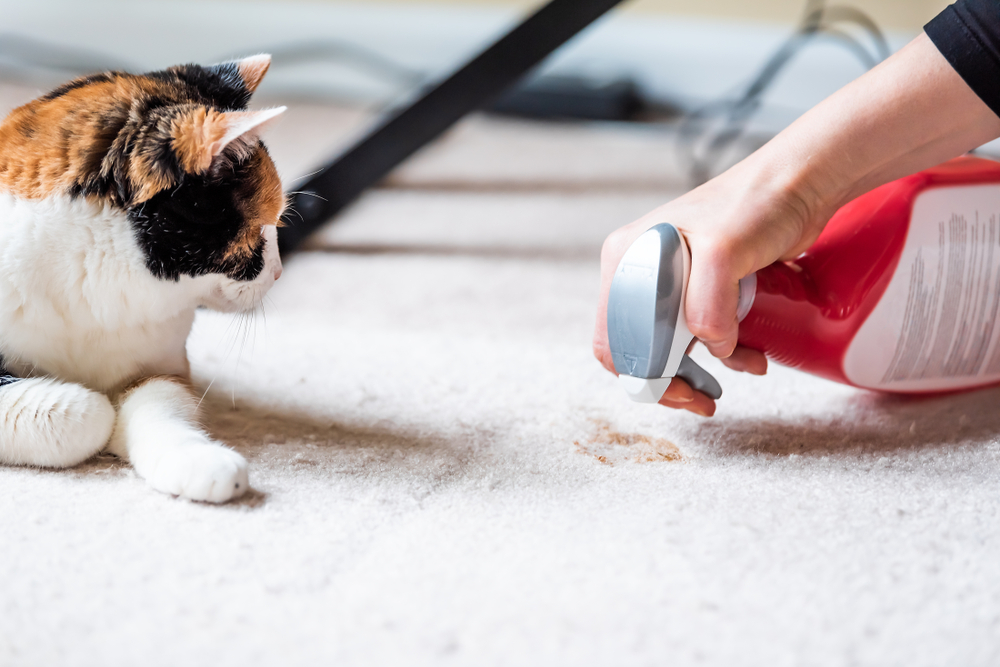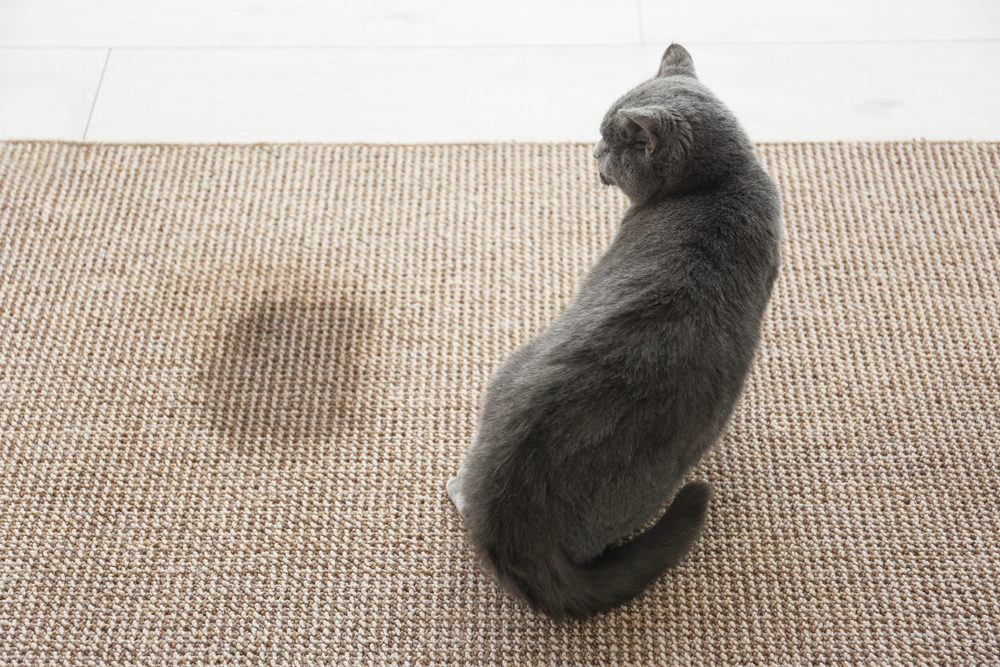Your cat may attempt to communicate their discomfort or stress by peeing outside their litter box, causing frustration and discord throughout your household. Before you start looking for a new home for your wayward kitty, our team at Mt Horeb Animal Hospital wants to explain reasons your cat may be peeing outside their litter box, and offer solutions to potentially remedy the problem.
#1: Your cat may have a medical problem
If your cat starts urinating outside their litter box, the first step is to have our veterinary professionals rule out a medical problem. Any issue that causes your cat discomfort can lead to inappropriate elimination. Examples include:
- Urinary tract infection (UTI) — UTIs can occur when bacteria travel up the urethra to the bladder, causing an inflammatory response in the urinary tract. Older female cats and diabetic cats are at higher risk. Your cat will need antibiotics to treat the infection, and will likely need follow-up testing, to ensure the infection is cleared.
- Urinary stones — Some cats develop stones (i.e., uroliths) in their bladder or urethra. Uroliths are mineral accumulations, most commonly calcium oxalate and struvite. While special prescription diets are available to help dissolve stones, surgical procedures may be necessary to remove the stones.
- Feline idiopathic cystitis (FIC) — FIC is the most common lower urinary tract disease in cats younger than 10 years of age. The exact cause is unknown, but stress and diet changes can increase your cat’s risk. Treatment usually focuses on environmental enrichment, feeding only canned food, and possibly, anti-anxiety medications.
- Arthritis — If your cat’s joints are painful, they may have trouble getting in and out of their litter box, and may seek alternative bathroom facilities. Offering a box that has low sides can help remedy this problem.
- Other — Many other diseases, including diabetes, thyroid issues, kidney disease, and liver disease, can increase your cat’s need to urinate, resulting in inappropriate elimination.
#2: Your cat may not appreciate their litter box setup
Cats are particular about their bathroom facilities, and if the litter box setup isn’t to their liking, they may become averse to the situation. Factors to consider include:
- Location — Ensure the litter box is in an easily accessible, low-traffic area. In addition, don’t place the box near noisy appliances, such as the washing machine and dryer, which may frighten your cat. If your home has multiple levels, place boxes on each level, so your cat has easy access.
- Size — Ensure your cat’s litter box is large enough for them to easily move around. A good rule of thumb is that the litter box should be as long as your cat from their nose to the tip of their outstretched tail, and as wide as your cat from their nose to their tail base.
- Box — Most cats prefer open boxes, but you can try a variety, to see which type they prefer.
- Box liners — Liners may help with clean-up, but most cats don’t appreciate this addition.
- Litter — Most cats prefer unscented, soft, fine-grained, clumping litter, with a litter depth of only one to two inches.
- Cleanliness — Scoop your cat’s litter box at least once a day, and thoroughly clean and change the litter once a week, to ensure the box meets their hygiene standards.
#3: Your cat may not want to share their litter box
Multi-cat households typically have more inappropriate elimination issues than single cat households. Cats don’t like to share bathroom facilities, and you should ensure every cat in your home has their own litter box. A good rule of thumb is one litter box for every cat in your home, plus one extra.
#4: Your cat may be experiencing stress or anxiety
Any change in your household routine can cause your cat stress and anxiety, and lead to inappropriate elimination. Changes such as home renovations, house guests, new pets, and new furniture can make your cat feel stressed and anxious. In addition, if you have multiple cats in your home, one may feel threatened by another, resulting in inappropriate elimination. Determining what is causing your cat to feel stressed or anxious may take some detective work, but finding and eliminating the source is the only way to remedy the problem.
#5: You cat may be attracted to the location they previously soiled

Cats often return to an area where they previously eliminated, if the scent is not completely neutralized. Cat urine emits an ammonia-like odor, making ammonia-based products contraindicated when cleaning urine spots. Enzyme-based cleaners break down the acid in cat urine, which helps to neutralize odors. Steps to take to eliminate the smell include:
- Blot the spot — As soon as possible, use a paper towel or clean cloth to absorb as much urine as possible.
- Rinse and vacuum — Next, rinse the area with clean water, and use a wet/dry vacuum to remove the moisture.
- Soak the spot — Pour a generous amount of enzyme cleaner over the spot, and allow the cleaner to sit for 10 to 15 minutes before blotting the spot with a clean cloth.
- Prevent access — Don’t allow your cat to return to the spot during the cleaning process.
Providing routine veterinary care and minimizing your cat’s environmental stress will help prevent inappropriate elimination. If your cat is peeing outside their litter box, contact our Mt Horeb Animal Hospital team, so we can rule out any potential medical problems.







Leave A Comment